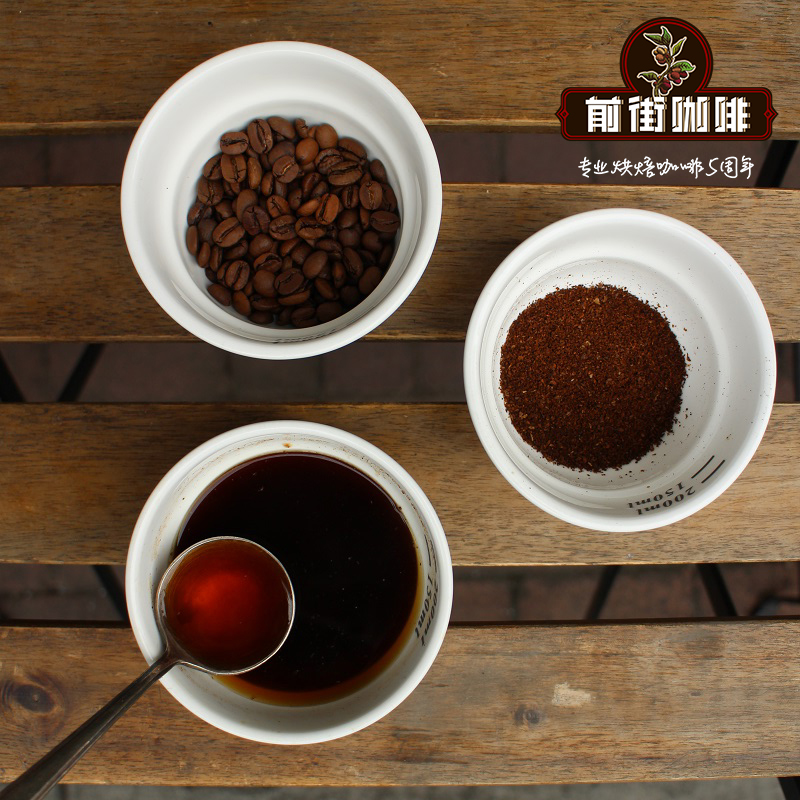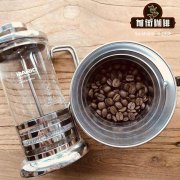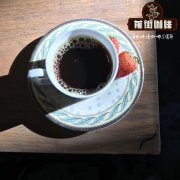Introduction of Humbela treatment Plant in Jiwamina Town, Solar Valley, Ethiopia. The difference between Guji and Yega

Professional coffee knowledge exchange more coffee bean information please follow the coffee workshop (Wechat official account cafe_style)
Yejasuefei and Sidamo are both boutique producing areas that have attracted considerable attention in recent years. Humbera processing plant is located in Gedeb in Guji block, which is only 75 kilometers away from Yejashev, but it always produces an excellent regional flavor different from Yejashefi. This block is 1900-2200 meters above sea level, with an annual average of 1200-1500mm sufficient Rain Water, and an average annual temperature of 18 ℃-25 ℃. The red brown clay loam fully retains nutrients, and the planting conditions can be said to be quite complete.
Ethiopia is the hometown of coffee and is rich in coffee varieties. This gene treasure house is an important resource for coffee research in the world. The main varieties are Arabica and rich native varieties. Among the many producing areas, the most well-known is YIRGACHEFFE, which even represents Ethiopian coffee. In the early days, Ethiopian water-washed beans were represented by Yegashev, and good sun-dried beans were Hara. In recent years, the growth of boutique coffee has broken the limitations of the processing methods and nature in the producing areas.
Heaven has given Ethiopia the most suitable environment and rich variety for Arabica, and the Ethiopian government has also actively improved and promoted the coffee industry. The emerging boutique producing areas include: SIDAMO, LIMU, DJIMMAH and HARAR. Domestic bean merchants are selected into good batches every year, of which Sidamo is near Yegashev. This year, BOWEN has been selected for Sunshine (Sidamo-Guji-Anasso) and Shuixiangbella, which is now a town with rich and sweet flavor, making it rare for BOWEN to buy directly after testing and baking, marking the start of this year's new production season in Ethiopia.
The sun beans produced in Shengshi Village, Humbela Manor, Guji District, Ethiopia, are not only G1 sun beans (that is, the grade with the lowest defect rate). ), and is a complete single producer, so that the quality can be fully guaranteed, because the quality is good or bad, the producer has to take full responsibility.
Humbera Manor in Ethiopia is located in the emerging coffee producing area-Guji; like the Godibe area introduced a few days ago, the elevation is often up to 2000 meters, and even on part of the way up the mountain, it is nearly 3000 meters high. It can be said to be the producing area of high-quality coffee beans developed in recent years. For example, the famous 90 + Hua Yu and Xia Qiso come from this place.
The general method of tanning is to expose the whole ripe coffee cherry in the sun (the most traditional way is to spread it directly on the ground. Coffee seeds will continue to ferment during the sun-drying process, and the whole process will fall in about a month.
On the other hand, the sun exposure method of Humbera Manor is very special. His method of sun treatment adopts the most stringent and exquisite work, which is to spread the coffee cherries on the scaffolding with only one layer of thickness and let them ferment in the sun. There is no stack, of course, the quality of each is easier to take into account, and the quality is better! the stack technique of one layer provides the most perfect convection and drying environment for coffee cherries. Proper slow drying can make coffee cherries develop the best activity during the drying process, which not only improves the flavor of coffee beans, but also allows the storage of raw beans to last longer in the production season. The drying schedule is strictly controlled at about 18 days. This treatment is so novel that some coffee predecessors call it SLD-Single Layer Drying/Slow Drying, which means single-layer slow drying in Chinese.
What Aman, the owner of the farm, paid to Humbera Manor is unimaginable. Because although this method of treatment can ensure the perfect quality of coffee beans, it is also the most space-consuming and most disadvantageous mode of production, which prolongs the time required for each batch of production, and adopts such a drying process. Not only depends on the weather for food, but also the producers are willing to invest. Aman's efforts have ensured the quality of Humbera, careful treatment and the right environment and climate have created a lofty quality of coffee.
So what is the difference in flavor between Guji and Yega Sheffield? although they are coffee beans produced in Ethiopia, the two taste slightly different. Both Yega Xuefei and Shakiso have the citrus and lemon flavor of fruit tea, but Yega Chefe is more prominent in sour taste, while Shakiso is better in sweetness and fullness. In particular, in Humbera Manor, a single layer of slow sun fermentation allows the pulp of coffee cherries to fully ferment, making coffee beans more sweet, sour and sweet tropical fruit flavor, sweet and rich, thick taste, is a very easy to understand flavor. The warm and moist taste slips into the mouth, like warm fruit tea, with the sweet and sour taste of peach.
Ethiopian Sunshine Sidamo Valley, Jiwamina Town Hambella processing Plant G1
English product name ET Sidamo Guji Wamena Hambella Natural G1
Gujiwamina town in the producing area
Producer Humbera processing plant
Annual rainfall 878mm
Shade tree Cordia Africana, Acacia Ensete ventricosum
Treatment of sun exposure
Variety Kumie Diga Wilsho (native species)
2060-2093 meters above sea level
GPS position N: 5 °53 & # 39 x 7.74 "E: 38 °34 & # 39 x 51.72" (degrees, minutes, seconds)
Flavor description: sweet peach, tangerine peel, spiced tea, grape Fanta, taste full, sweet, soft and juicy
END
Important Notice :
前街咖啡 FrontStreet Coffee has moved to new addredd:
FrontStreet Coffee Address: 315,Donghua East Road,GuangZhou
Tel:020 38364473
- Prev

Sun exposure Coffee beans from Banke processing Plant in Woka Village, Ethiopia _ Waka Cooperative Worka Coop
Professional coffee knowledge exchange more coffee bean information please follow the coffee workshop (Wechat official account cafe_style) Chinese name Ethiopian Coffee Sun Yega Snow Fei Jetipu Town Woka Village Class processing Plant G1 English name ET Yirgacheffe Gedeb Worka Banko Natural G1 production area Jetipu Town Woka Village producer Banke
- Next

Ethiopia Wolichu Wachu Wulichuachu processing Plant-Ethiopian Bourbon Coffee beans
Professional Coffee knowledge Exchange for more information on coffee beans please follow the new batch of Ethiopian coffee from the small processing plant in the coffee workshop (Wechat official account cafe_style) on the other side of the mountain. Altitude: 2100-2310 m area: Guji washing station: Walichu Wachu (Wali out) bean seed: Ethiopian native species Ethiopian Heirloom washing place
Related
- Detailed explanation of Jadeite planting Land in Panamanian Jadeite Manor introduction to the grading system of Jadeite competitive bidding, Red bid, Green bid and Rose Summer
- Story of Coffee planting in Brenka region of Costa Rica Stonehenge Manor anaerobic heavy honey treatment of flavor mouth
- What's on the barrel of Blue Mountain Coffee beans?
- Can American coffee also pull flowers? How to use hot American style to pull out a good-looking pattern?
- Can you make a cold extract with coffee beans? What is the right proportion for cold-extracted coffee formula?
- Indonesian PWN Gold Mandrine Coffee Origin Features Flavor How to Chong? Mandolin coffee is American.
- A brief introduction to the flavor characteristics of Brazilian yellow bourbon coffee beans
- What is the effect of different water quality on the flavor of cold-extracted coffee? What kind of water is best for brewing coffee?
- Why do you think of Rose Summer whenever you mention Panamanian coffee?
- Introduction to the characteristics of authentic blue mountain coffee bean producing areas? What is the CIB Coffee Authority in Jamaica?

